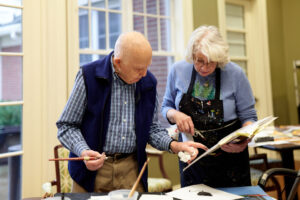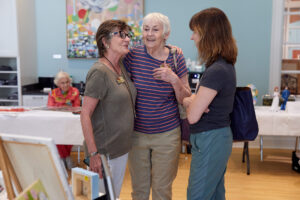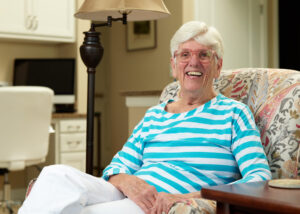Tipping the Scales of Life in Our Favor
How would you spend 30 Bonus Years™?

Comedian George Burns was once quoted as saying, “If you live to be one hundred, you’ve got it made. Very few people die past that age.” While Burns’ quip is funny, the phenomenon of longer life expectancies is no joke.
When the modern idea of the “golden years” of retirement was conceived in the mid-20th century, average life expectancy was barely over 65. But now that the average lifespan is nearing 80-plus, many people approaching retirement age find they are definitely not ready to just step aside and be forgotten. Far from it: they’ve made 100 the new 80.
Until recently, living to 100 was considered a rare phenomenon. It’s not so rare anymore, and experts have taken notice. One doctor in particular has dubbed this new life stage “30 Bonus Years™,” and it promises to change the way we think about life.
“As people live longer, our concept of what it means to be old (and the age at
which one becomes old) are rapidly changing,” said gerontologist Alexis Abramson, Ph.D. “Along with considering their retirement plans, people are planning for how they want to spend their 30 Bonus Years.
I had the opportunity to conduct a large-scale survey with Bank of Montreal (BMO) in Canada and the U.S., and the findings led to 121the Four Keys to Longevity.”
The vast majority of baby boomers not only want to live longer, they also want to live more healthily, happily and financially secure than ever before. The Four Keys to Longevity provide a good place to start.

KEY 1: THE BODY
According to research conducted by Dr. Dean Ornish and team at the University of California, San Francisco concluded that eating healthy, exercise and stress reduction may slow down the aging process. The odds of living longer are greatly increased when people:
- Get seven to eight hours of sleep per night
- Engage regularly in stretching and deep breathing
- Are physically active at least three times a week
- Drink eight glasses of water daily
- Eat generous amounts of dark leafy vegetables, fresh fruit and whole grains and limit or eliminate unhealthy fats, processed sugars and preservatives
- Consume a moderate amount of alcohol
“With my research into aging and longevity, I’ve found that following a Mediterranean diet and drinking water according to a person’s body weight to be even more advantageous toward living a longer, healthier life,” said Dr. Abramson.
KEY 2: THE MIND

We’ve all heard the adage, ‘healthy mind, healthy body.’ It’s not quite that simple, but a healthy brain plays an integral role in living a healthy life. The BMO survey results revealed the biggest concern about living to 100 was the potential loss of mental ability. The findings suggest the following tactics to keep the brain sharp.
- Cognitive training focused on memory, reasoning and processing activities
- Engaging in moderate or vigorous aerobic exercise a few times a week
- Being a non-smoker improves the likelihood of a sharper mind by nearly double that of a smoker
- Maintaining social networks through work, volunteering, clubs, activities, etc.
The brain is a muscle that requires regular exercise for optimal function. Many older adults have embraced technology and discovered online resources including games, podcasts, audio books and fitness programs.
KEY 3: SOCIAL

Many older adults want to live life to its fullest, and the 30 Bonus Years gives them even more time to do so. They are earning college degrees later in life, like Barbara Ketcham, a resident in Meadow Active Lifestyle Community at Masonic Homes Kentucky. Ketcham is pursuing a Bachelor of Arts Degree at the University of Louisville. “It’s something I have always wanted to do and now I have the opportunity.”
Those enjoying their 30 Bonus Years are fulfilling dreams, traveling at a whim, taking up new hobbies or recommitting to former passions. Others are kicking back and enjoying some well-deserved rest and relaxation. But most are not interested in slowing down.
“For many retirees, depression can become an issue, which makes maintaining or building a strong social network even more important,” said Dr. Abramson. “Some have found working a part-time job to be a great solution, while also supporting the fourth key: financial.”

KEY 4: FINANCIAL
Survey respondents ranked financial security a close second to socialization as the most important to their ideal lifestyle after retirement. The expenses facing the aging are many, with most identifying medical and health, daily living essentials, housing and long-term care as their biggest expenses.
Betsy Waterman and husband, John, have lived at Meadow Active Lifestyle Community since 2018, and chose the community because of family and friends in the Louisville area. Along with the enticement of moving into a brand-new building, Masonic’s Life Care offered an added peace of mind by providing protection for the future.

“There’s a huge feeling of security to have Life Care — all the different assistive resources we might need are right here at Masonic, and there’s a measure of financial stability too,” said Betsy, who is a Life Care participant. “It’s as if a giant umbrella has been stretched over top of the campus and we are protected no matter what the future brings.”
April 1, 2022